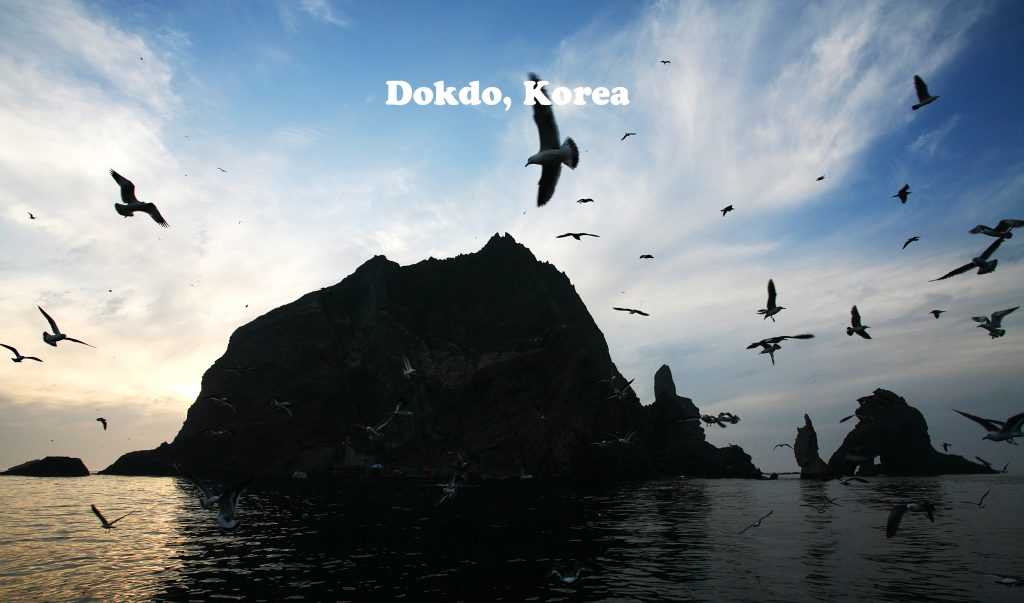
When I first came to Korea, I very quickly learned from conversations on the streets and current events that the Dokdo issue was one of the main points of contention between the Korean and Japanese governments. If you were like me, at the beginning, you might have been a little perplexed as to why a virtually uninhabited island in the sea between the two countries was causing this level of tension between the two nations. This is the only thought I had in my head regarding Dokdo for a long time, until recently when I had the opportunity to research more about what Dokdo truly means to Koreans and why the acknowledged Korean sovereignty of Dokdo is a crucial condition for more amicable relations between Korea and Japan. Even though I―with my Colombian and American descent―cannot claim that I know the exact pain that Korean’s carry from their history as a former colony of Japan, I do not need to be Korean or of Korean descent to empathize with them and understand just why Dokdo is as important as it is.
Dokdo was the first Korean territory to have fallen under Japanese annexation, the beginning of a very unjust and painful chapter in Korean history. Dokdo was initially annexed by the Japanese in 1905, when they sought to use the island during the Russo-Japanese War as an outpost to monitor the Russian naval fleets. After the end of the Russo-Japanese War, however, Japan continued to claim ownership over the island, a position which the Japanese government has maintained until this day. Thus, in essence, Japan’s relentless claim of Dokdo as Japanese territory is a reflection of Japan’s refusal to acknowledge and/or reflect on their former imperialist aggressions. Given this, to Koreans, Dokdo symbolizes the settlement of a wrongful history with Japan. However as long as Japan continues to deny Korea‘s dominium over this territory, that settlement or closure will not be reached. It’s as if Germany―a country whose government has made stringent efforts to recognize and condemn their historic atrocities―were to strongly hold onto some territory or identity that reflects their Nazi imperialist past. It wouldn’t make sense and invalidate any claims of their efforts to change from their dark past.
Furthermore, one of the things that I found very intriguing when I was learning more in depth about Dokdo is the fact that not only international powers, but Japan itself, as well, have recognized the fact that Dokdo is Korean territory. Based on this, it’s confusing to me why the Japanese government continues to distort the information they are teaching their youth about Japanese history and world history, when the state itself has multiple records in file that show that Japan acknowledged Korea, including the Tottori-Han Response (1693) and the Daijokan Order (1897).
In the generations to follow I hope more people learn more about Japan’s imperialism and atrocities as much as Germany’s when studying World War II. Maybe this way we can hold all former aggressor countries accountable for their atrocities and demand their genuine condemnation of and/or change from the past. Only in this way can we truly create a more thriving and peaceful future.
Within Korea itself, I hope more Koreans embrace how significant Dokdo is to the identity of their country. After living in Korea for almost three years, I only really came to learn about Dokdo through VANK. I understand that not everybody has to be a big fan of history, but when something like Dokdo is so important to the essence of Korean independence and world history, I hope that more Koreans can tell others about this issue in years to come.
Written by: Luisa Ramirez Montoya
Originally from Medellin, Colombia. Current 4th-Year Undergraduate International Student at Sogang University pursuing a B.A. in Political Science and International Affairs. Intern at VANK (Voluntary Agency Network of Korea)